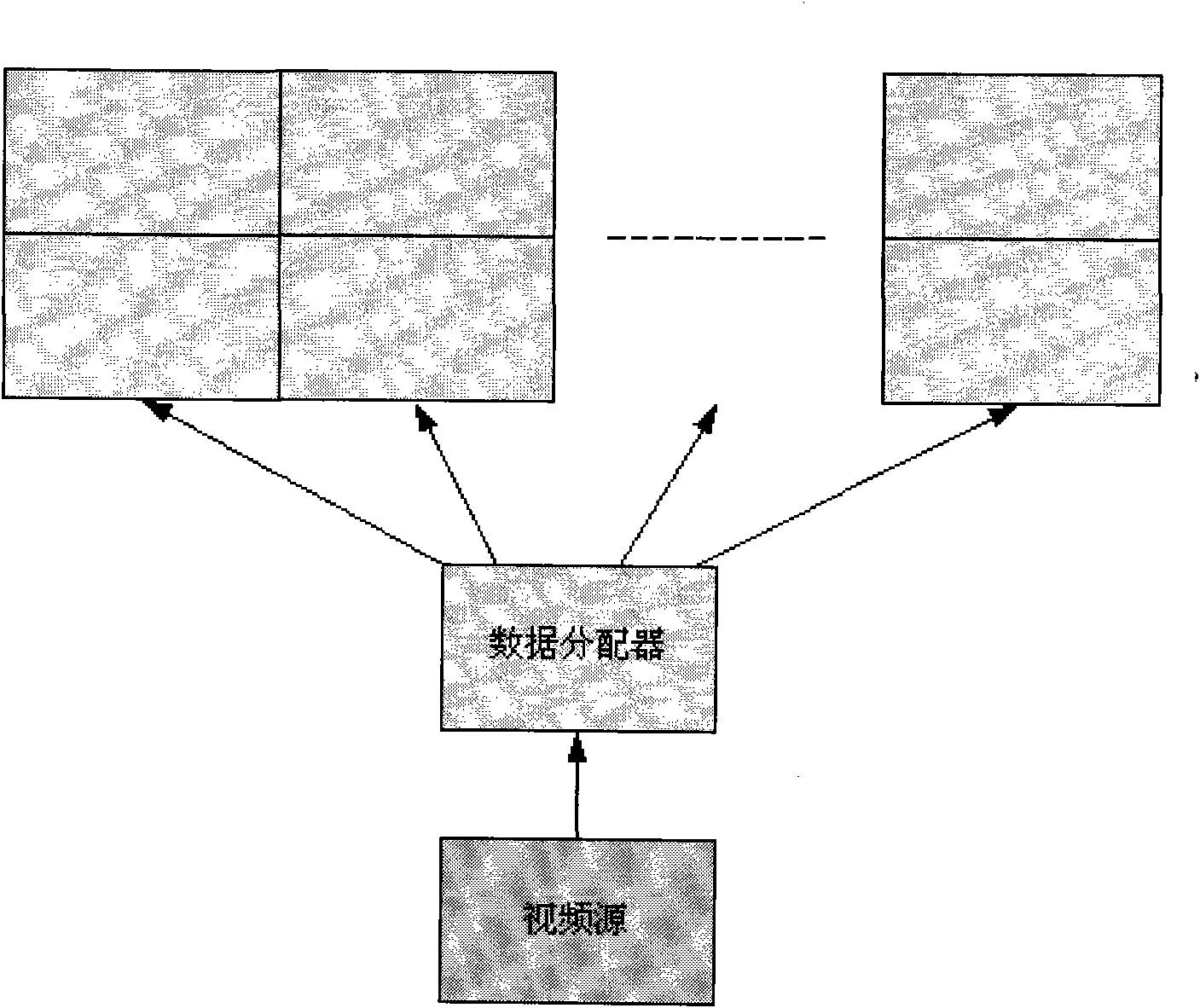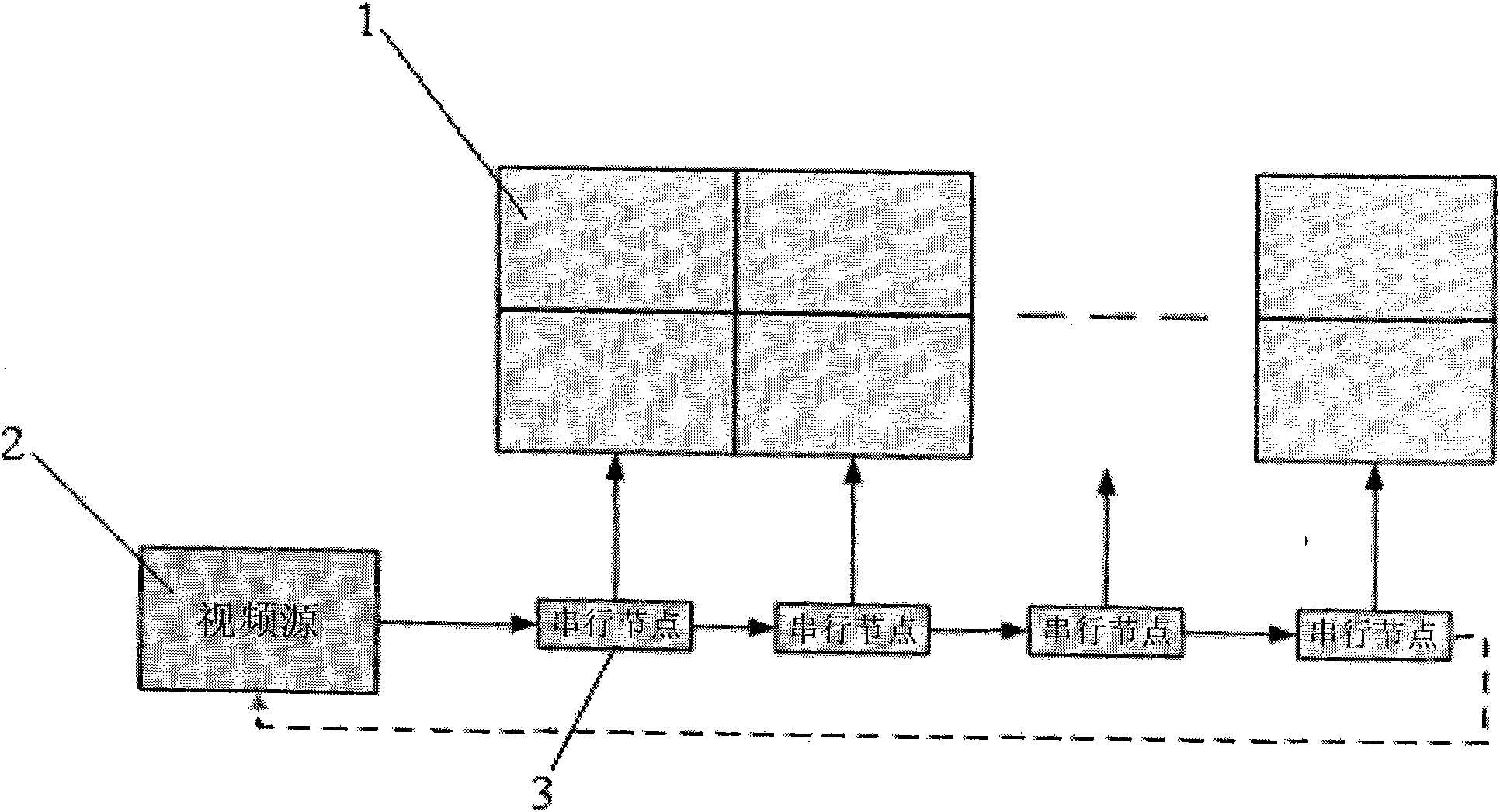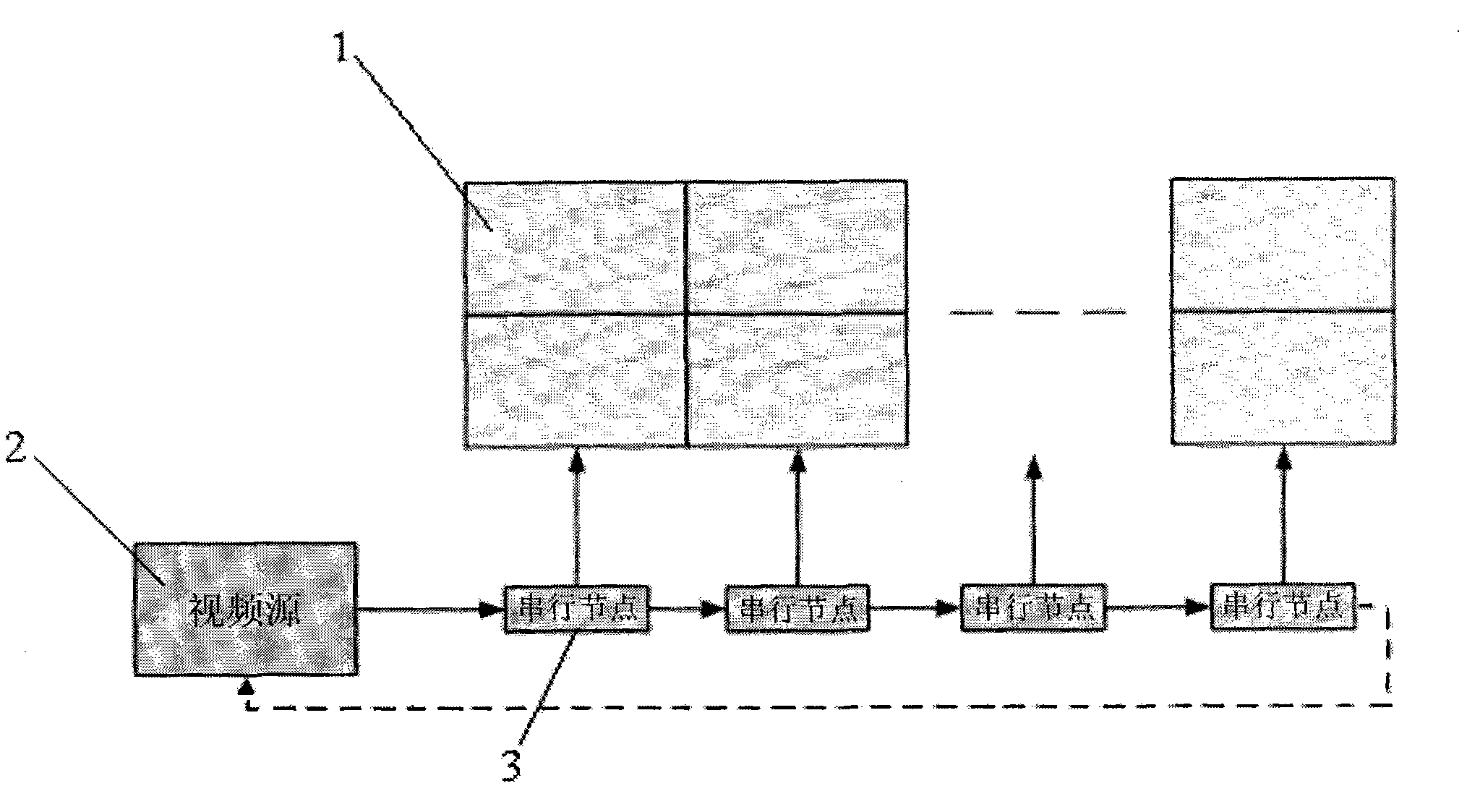Method and device for jointing display screens
A splicing display and screen technology, which is applied in the field of splicing screen systems, can solve problems such as increasing the number of splicing screen systems and improving performance barriers, and achieve the effect of reducing quality and small time difference
- Summary
- Abstract
- Description
- Claims
- Application Information
AI Technical Summary
Problems solved by technology
Method used
Image
Examples
Embodiment 1
[0020] Embodiment 1: the present invention is further described below in conjunction with specific embodiment, but protection scope of the present invention is not limited to this:
[0021] A device for splicing display screens, such as figure 2 As shown, it consists of a video source transmitter 2, a serial data bus, 16 display nodes, and 16 digital displays 1, wherein: the video source transmitter is connected to the serial data bus, and each display node is set on the serial data bus Each display node is connected to its corresponding digital display; the serial node is a video processing board 3, and each digital display of the splicing screen is connected to a board 3, and the board 3 is configured for digital According to the needs of the system, the number of screens can be arbitrarily increased by adding a plurality of processing boards 3 according to the content that the display screen needs to display, so that the entire splicing screen can display the required imag...
Embodiment 2
[0031] Embodiment 2: The difference between this embodiment and Embodiment 1 is that the data bus can be designed as a closed loop. In the closed loop situation, the video data will eventually return to the sending end, and the video source transmitter can be set at any position on the bus. Such as figure 2 Shown by the dotted line.
PUM
 Login to View More
Login to View More Abstract
Description
Claims
Application Information
 Login to View More
Login to View More - R&D
- Intellectual Property
- Life Sciences
- Materials
- Tech Scout
- Unparalleled Data Quality
- Higher Quality Content
- 60% Fewer Hallucinations
Browse by: Latest US Patents, China's latest patents, Technical Efficacy Thesaurus, Application Domain, Technology Topic, Popular Technical Reports.
© 2025 PatSnap. All rights reserved.Legal|Privacy policy|Modern Slavery Act Transparency Statement|Sitemap|About US| Contact US: help@patsnap.com



